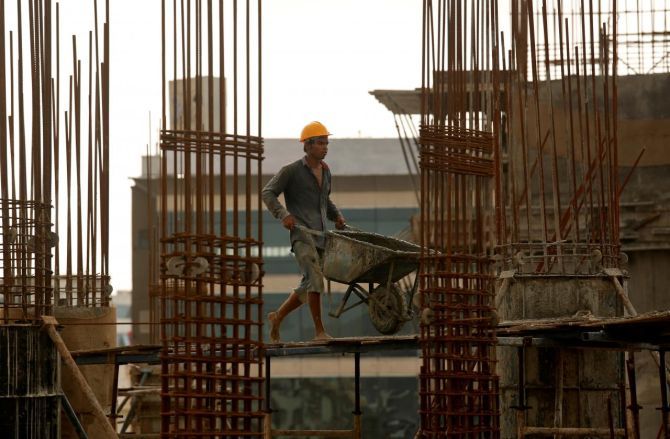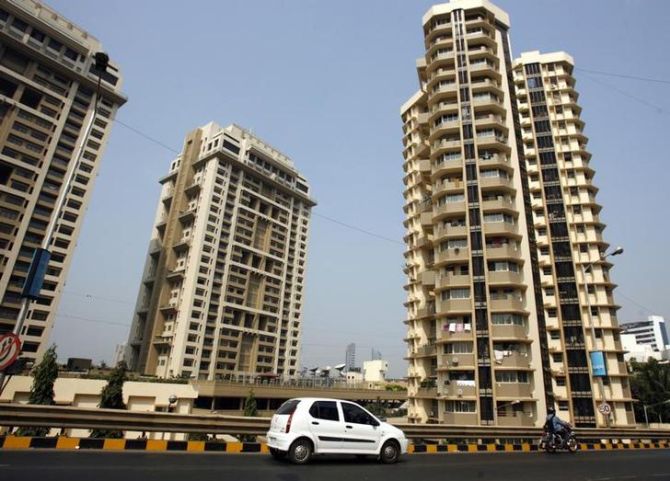Despite the absence of any notable price growth, transaction volumes are picking up in major Indian cities. The surge in sentiments is also backed by a significant rise in transparency in the industry.

vIndian real estate is going through an interesting phase, as sentiments are bottoming out in most of the major markets.
Despite the absence of any notable price growth, transaction volumes are picking up in major Indian cities.
The surge in sentiments is also backed by a significant rise in transparency in the industry.
The industry is also capitalising on the re-election of the Modi government and the budget session that was underpinned by a growing emphasis on infrastructure, affordable homes and liquidity.
Here are the six major trends that will shape India's real estate sector in near future.
End-user market – A few years back, Indian real estate has been marked by soaring investor activity, as they constituted around 40 per cent of the transaction volume.
However, as the market slowed down gradually, investment activities also started to dry up and the market became end-user driven.
Although with reviving sentiments in the industry, investor activities have picked up in recent times, the market is still predominantly end-user driven.
In the times ahead, it will remain the same with no chance of possible turn-around.
Ironically this might also be the best time to invest: Although the market is mostly run by end-users, this might be a conducive time to invest in the sector.
Property prices are viable in most of the major markets in India, due to corrections in the past.
Juxtaposing the recent ease out of the prices with reviving sentiments, makes the present Indian property market a perfect recipe to get an attractive dividend in the middle run.
As property prices are attractive, investors should bet on the industry and capitalise on the resurging sentiments.
Affordable & mid-income homes will get a thrust: The time for affordable and mid-priced homes (less than Rs 45 lakh) has finally come.
As home shortages continue to soar, there has been a pressing need to take emboldened steps to bridge the gap.
Fortunately, the government has been taking proactive steps to address the challenge.
In its first term, it gave infrastructure status to affordable housing, offered financial incentives to buyers and devised innovative mechanism to raise funds.
In the maiden Budget of the 2nd term, the government continued its commitment towards affordable homes in India.
In the times ahead, the affordable and mid-priced segment will constitute a sizable part of the market.
Real estate growth will be pinned on infrastructure development: Infrastructure growth and demand for real estate are interlinked with each other.
The influence of infrastructure on real estate is multi-faceted.
On one hand, growth in infrastructure acts as a catalyst for more economic progress thereby spurring housing demand.
On the other hand, major infrastructure projects such as ring roads, railway lines, metro networks, airports attract commercial activities in its vicinity, thereby resulting in a spurt in land prices.
Jacking up of land prices in conjunction with growing commercial activity feeds into residential demand, thereby thriving residential market in the vicinity.
As the government has proposed a massive investment of Rs 100 lakh crore in infrastructure, real estate is expected to get a boost.
On the back of growth in infrastructure, new urban corridors will evolve and surge in activity will unravel in the suburban areas.
Real estate activity will also pick-up in townships and rural parts of the country on the back of infrastructure growth.
Organisation & consolidation in the sector: As the government has taken some praiseworthy decisions in recent times in the form of RERA, GST, demonetization, REITs, etc.- the overall industry is organising and consolidating.
Over the past 5-6 years, the number of developers in major Indian cities such as Gurgaon, Noida, Mumbai and Chennai, have shrunk by around 60 per cent.
Major corporate such as Tata, Adani, Godrej, Mahindra continue to expand their foothold in the market, the consolidation in the industry will continue to unravel.
Industry consolidation will be very beneficial for the overall industry dynamics as it will ensure timely delivery of the projects, enhance overall project execution, cultivate buyer confidence and streamline the market by addressing the supply-demand dynamics.
Increased discipline in the transaction space as well: As the realty market continue to consolidate, the transaction space will also evolve rapidly.
In a market that is highly unorganised and run by brokers, large advisories are making a notable mark.
Often called Institutional Channel Partners (ICP), these advisories currently control around 10 per cent of the transaction space in major cities.
This will grow further, as there is a pressing need for unbiased and value-added advisory in the realty space.
Interestingly, the growth will emanate from both metros as well as tier-II cities.
Ankit Kansal is a founder and managing director of 360 Realtors.
Photograph: Francis Mascarenhas/Reuters









